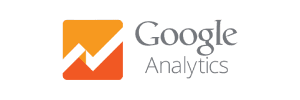Introduction
In today’s digital landscape, having a well-optimized website is crucial for online success. While there are numerous factors that contribute to a website’s overall optimization, one aspect that stands out is on-page SEO. On-Page SEO refers to the practice of optimizing individual web pages to improve search engine rankings and enhance user experience. In this blog post, we will explore the importance of on-page SEO and how it can significantly impact your website’s performance and visibility.
Improved Search Engine Rankings
On-page SEO plays a pivotal role in determining how search engines perceive and rank your web pages. By optimizing various on-page elements such as title tags, meta descriptions, heading tags, and keyword usage, you increase the chances of search engines recognizing the relevance and quality of your content. This, in turn, can result in higher search engine rankings, ultimately driving more organic traffic to your website.
Enhanced User Experience
User experience is a crucial factor that search engines consider when ranking websites. By focusing on on-page SEO, you can improve the overall user experience of your website. Optimizing page load speed, ensuring mobile responsiveness, and creating user-friendly navigation all contribute to a positive user experience. When visitors have a seamless and enjoyable experience on your website, they are more likely to stay longer, engage with your content, and convert into customers or subscribers.
Targeted Keyword Optimization
On-page SEO allows you to strategically optimize your web pages for target keywords and phrases. By conducting thorough keyword research and incorporating relevant keywords naturally into your content, you can increase the visibility of your website for specific search queries. Targeting the right keywords helps attract qualified traffic that is actively searching for the products, services, or information you provide, increasing the chances of conversions and business growth.
Increased Click-Through Rates
Title tags and meta descriptions, two critical on-page elements, directly impact the click-through rates (CTRs) of your search engine listings. Crafting compelling and keyword-rich titles and meta descriptions can entice users to click on your website in search results. A higher CTR not only drives more traffic but also sends positive signals to search engines that your content is relevant and engaging, potentially boosting your rankings further.
Content Relevance and Quality
On-page SEO encourages you to create high-quality, relevant, and valuable content for your target audience. By aligning your content with user intent, addressing their needs and pain points, and providing comprehensive information, you establish your website as an authoritative resource in your industry. This, in turn, builds trust and credibility with both users and search engines, leading to increased visibility, organic backlinks, and improved rankings.
Better Conversion Rates
Effective on-page optimization contributes to higher conversion rates. By optimizing landing pages, call-to-action buttons, and forms, you can create a smooth and persuasive user journey. When your website is user-friendly, loads quickly, and offers valuable content, visitors are more likely to take the desired actions, such as making a purchase, filling out a contact form, or subscribing to a newsletter. This translates into increased conversions, ultimately driving business growth.
Conclusion
On-page SEO is a fundamental aspect of website optimization that should not be overlooked. Its impact on search engine rankings, user experience, targeted keyword optimization, click-through rates, content quality, and conversion rates is undeniable. By investing time and effort into optimizing your web pages, you lay a solid foundation for online success, ensuring your website is well-positioned to attract organic traffic, engage visitors, and drive meaningful results. So, embrace on-page SEO practices and unlock the full potential of your website in the digital landscape.







